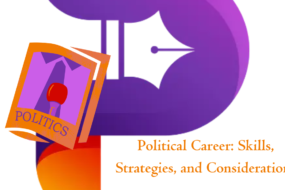
Scrum is a popular agile framework for developing, delivering, and sustaining complex products. It is based on the principles of empiricism, self-organization, and collaboration. Scrum teams work in short iterations called sprints, where they deliver potentially releasable increments of value to the customers or stakeholders.
A scrum master is a key role in a scrum team, who is responsible for facilitating the scrum process, coaching the team members, and removing any impediments that hinder the team’s progress. A scrum master is not a traditional project manager, but rather a servant-leader who helps the team achieve their goals and improve their performance.
A career in scrum master can be rewarding, challenging, and fulfilling. It can also offer many opportunities for learning, growth, and recognition. However, becoming a successful scrum master requires certain skills, knowledge, and experience. In this article, we will explore how to become a scrum master, what are the roles and responsibilities of a scrum master, what are the benefits and challenges of being a scrum master, and what are the best practices and tips for aspiring scrum masters.
Contents
How to Become a Scrum Master
There is no one definitive path to becoming a scrum master, but there are some common steps that can help you prepare for this role. Here are some of them:
- Learn the basics of scrum and agile. Before you can apply scrum in practice, you need to understand its theory and principles. You can start by reading the Scrum Guide, which is the official source of scrum rules and definitions. You can also learn from other books, blogs, podcasts, videos, and courses that cover agile and scrum topics. Some of the recommended resources are:
- Agile Manifesto, which is the foundational document of agile values and principles.
- Agile Alliance, which is a global organization that promotes agile practices and provides various resources for agile practitioners.
- Scrum.org, which is a leading provider of scrum training, certification, and community.
- Scrum Alliance, which is another leading provider of scrum training, certification, and community.
- The Agile Coach, which is a podcast that features interviews with agile experts and practitioners.
- Scrum Master Toolbox Podcast, which is another podcast that features daily tips and insights from experienced scrum masters.
- Scrum: The Art of Doing Twice the Work in Half the Time, which is a book by Jeff Sutherland, one of the co-creators of scrum.
- Essential Scrum: A Practical Guide to the Most Popular Agile Process, which is a book by Kenneth S. Rubin, a renowned agile consultant and trainer.
- Gain some practical experience. Learning scrum from books and courses is not enough; you need to apply it in real projects and teams. You can start by joining or forming a scrum team in your current organization or finding opportunities to work as a scrum master in other organizations. You can also volunteer for non-profit or open-source projects that use scrum or join online communities where you can collaborate with other scrum enthusiasts. Some of the platforms where you can find such opportunities are:
- Scrum.org Forums, where you can ask questions, share experiences, and learn from other scrum practitioners.
- Scrum Alliance Community, where you can join local or global groups, events, webinars, and discussions related to scrum.
- Agile Careers, where you can find job openings for agile roles, including scrum master.
- Volunteer Match, where you can find volunteer opportunities for various causes and projects that use agile methods.
- GitHub, where you can contribute to open-source projects that use scrum or other agile frameworks.
- Get certified as a scrum master. Although certification is not mandatory to become a scrum master, it can help you demonstrate your knowledge and skills to potential employers and clients. It can also help you stand out from other candidates and increase your credibility and confidence. There are many organizations that offer different levels of certification for scrum masters, such as:
- Professional Scrum Master (PSM), which is offered by Scrum.org and has three levels: PSM I, PSM II, and PSM III. The PSM certification is based on an online assessment that tests your understanding of the Scrum Guide and your ability to apply it in practice.
- Certified ScrumMaster (CSM), which is offered by Scrum Alliance and has two levels: CSM and Advanced CSM. The CSM certification is based on attending a two-day training course and passing an online exam that tests your knowledge of the Scrum Guide and the Scrum Alliance values.
- Scrum Master Certified (SMC), which is offered by SCRUMstudy and has one level. The SMC certification is based on attending a two-day training course or self-study and passing an online exam that tests your knowledge of the SCRUMstudy Body of Knowledge (SBOK).
(Also Read: How to Become a Nutritionist)
Roles and Responsibilities of a Scrum Master
A scrum master has three main roles: serving the product owner, serving the development team, and serving the organization. Each role involves different responsibilities, such as:
- the product owner. The product owner is the person who is responsible for defining and prioritizing the product backlog, which is the list of features and requirements that the team needs to deliver. The scrum master helps the product owner by:
- Ensuring that the product backlog is visible, transparent, and clear to all stakeholders.
- Facilitating the collaboration between the product owner and the development team, as well as other stakeholders such as customers and users.
- Coaching the product owner on how to create and refine user stories, acceptance criteria, and value propositions.
- Helping the product owner plan and review the product roadmap, vision, and goals.
- Supporting the product owner in managing dependencies, risks, and changes.
- Serving the development team. The development team is the group of people who are responsible for delivering potentially releasable increments of value at the end of each sprint. The scrum master helps the development team by:
- Ensuring that the team follows the scrum values, principles, and practices.
- Facilitating the scrum events, such as sprint planning, daily scrum, sprint review, and sprint retrospective.
- Coaching the team on how to self-organize, collaborate, and cross-function.
- Helping the team create and adhere to a definition of done, which is a shared understanding of what constitutes a quality product increment.
- Removing any impediments that prevent the team from achieving their sprint goal.
- Serving the organization. The organization is the larger context in which the scrum team operates. It includes other teams, departments, managers, executives, customers, suppliers, regulators, etc. The scrum master helps the organization by:
- Promoting and supporting the adoption of scrum and agile values and principles across the organization.
- Educating and influencing other stakeholders on how to interact with and support the scrum team.
- Resolving any conflicts or issues that arise between the scrum team and other parts of the organization.
- Fostering a culture of transparency, feedback, learning, and improvement within and outside the scrum team.

Benefits and Challenges of Career in Scrum Master
Being a scrum master can have many benefits, such as:
- Learning new skills and knowledge. As a scrum master, you will have many opportunities to learn from your own experience as well as from others. You will also have access to various resources and communities that can help you grow your agile expertise.
- Making a positive impact. As a scrum master, you will have a direct influence on how your team delivers value to your customers and stakeholders. You will also have a chance to improve your team’s performance, satisfaction, and happiness.
- Building meaningful relationships. As a scrum master, you will work closely with your team members and other stakeholders. You will also interact with other scrum masters and agile practitioners who share your passion and vision. You will be able to build trust, respect, and friendship with them.
- Enjoying variety and flexibility. As a scrum master, you will face different challenges and situations every day. You will also have some autonomy and freedom to choose how you approach your work. You will never get bored or stuck in a routine.
However, being a scrum master can also have some challenges, such as:
- Dealing with resistance and misunderstanding. Not everyone in your organization may understand or appreciate what you do as a scrum master. You may encounter some resistance or skepticism from people who are used to traditional ways of working or who have different expectations or agendas.
- Balancing multiple roles and responsibilities. As a scrum master, you have to wear many hats and juggle many tasks. You have to serve different stakeholders with different needs and interests. You have to switch between coaching, facilitating, mentoring, teaching, resolving conflicts, removing impediments, etc.
- Managing stress and pressure. As a scrum master, you have to deal with complex problems and uncertainties on a regular basis. You have to cope with changing requirements, deadlines, expectations, etc. You have to handle difficult situations and emotions from yourself and others.
- Maintaining your own development and well-being. As a scrum master, you have to take care of your own development and well-being. You have to keep learning and improving your skills and knowledge. You have to find a balance between your work and your personal life. You have to seek feedback and support from others.
Best Practices and Tips for Aspiring Scrum Masters
If you are interested in pursuing a career in scrum master, here are some best practices and tips that can help you succeed:
- Be passionate about scrum and agile. To be a good scrum master, you need to have a genuine interest and enthusiasm for scrum and agile. You need to believe in the values and principles that guide these methods. You need to be willing to learn, experiment, and adapt.
- Be humble and respectful. To be a good scrum master, you need to have a humble and respectful attitude towards yourself and others. You need to acknowledge your strengths and weaknesses, and seek feedback and improvement. You need to respect the opinions and perspectives of your team members and other stakeholders, and listen to them with an open mind.
- Be proactive and assertive. To be a good scrum master, you need to have a proactive and assertive approach to your work. You need to anticipate and prevent potential problems, and act quickly and decisively when they arise. You need to communicate clearly and effectively, and express your opinions and concerns with confidence.
- Be flexible and adaptable. To be a good scrum master, you need to have a flexible and adaptable mindset. You need to embrace change and uncertainty, and adjust your plans and actions accordingly. You need to be open to new ideas and opportunities, and willing to try different things.
- Be collaborative and supportive. To be a good scrum master, you need to have a collaborative and supportive style of working. You need to foster a positive and productive team culture, where everyone feels valued and empowered. You need to help your team members grow their skills and capabilities, and celebrate their achievements.
FAQs
Here are some frequently asked questions about scrum master career:
- Q: How much does a scrum master earn?
- A: The salary of a scrum master can vary depending on various factors, such as the location, industry, experience, certification, etc. According to [Glassdoor], the average base salary of a scrum master in India is ₹1,360,000 per year as of August 2023.
- Q: What are the career prospects of a scrum master?
- A: The demand for scrum masters is increasing as more organizations adopt agile methods for their projects. According to [LinkedIn], the scrum master role is one of the most promising jobs in 2023, with a 67% year-over-year growth in hiring.
- Q: What are the skills required for a scrum master?
- A: Some of the essential skills for a scrum master are:
- Scrum knowledge: The ability to understand and apply the scrum framework, values, principles, practices, roles, events, artifacts, etc.
- Agile mindset: The ability to embrace the agile values and principles, such as customer focus, collaboration, transparency, feedback, learning, adaptation, etc.
- Facilitation skills: The ability to plan, conduct, and moderate effective meetings and workshops that engage the participants and achieve the desired outcomes.
- Coaching skills: The ability to guide, mentor, teach, inspire, motivate, empower, challenge, support, etc., the team members and other stakeholders on their agile journey.
- Communication skills: The ability to convey clear, concise, consistent, coherent messages using various modes (verbal, written) channels (email phone) media (text image) etc., that suit the audience context purpose etc.
- Conflict resolution skills: The ability to identify analyze resolve prevent etc., conflicts that arise within or outside the team using various techniques such as negotiation mediation arbitration etc.
- Problem-solving skills: The ability to define analyze solve prevent etc., problems that hinder the team’s progress using various tools such as root cause analysis brainstorming fishbone diagram etc.
- Leadership skills: The ability to influence inspire motivate empower etc., others towards a common vision goal objective etc., using various styles such as servant-leader transformational leader situational leader etc.
Conclusion
A career in scrum master can be an exciting rewarding fulfilling etc., option for those who are passionate about agile methods product development team performance etc. However it also requires certain skills knowledge experience etc., that can be acquired through learning practicing certifying etc. A scrum master has three main roles serving the product owner serving the development team serving the organization etc., each with different responsibilities such as facilitating coaching removing impediments promoting supporting educating influencing resolving fostering etc. A scrum master can also enjoy many benefits such as learning making an impact building relationships enjoying variety flexibility etc., but also face some challenges such as dealing with resistance misunderstanding balancing multiple roles responsibilities managing stress pressure maintaining own development well-being etc. To overcome these challenges and succeed as a scrum master, some best practices and tips are to be passionate humble respectful proactive assertive flexible adaptable collaborative supportive etc.






